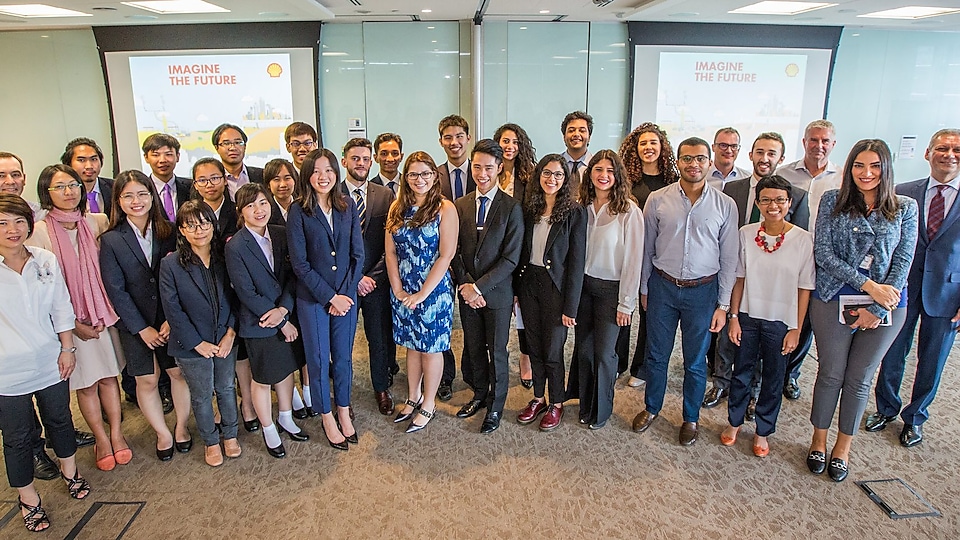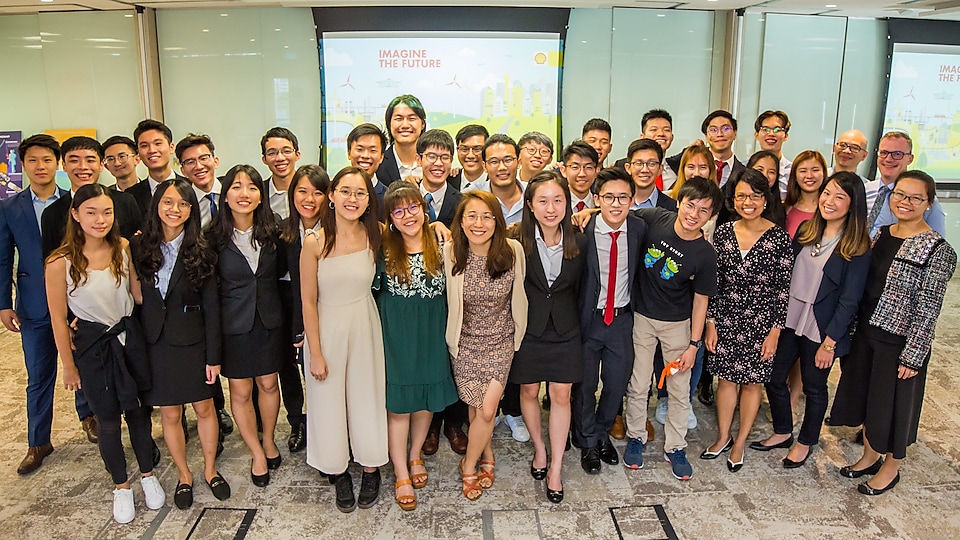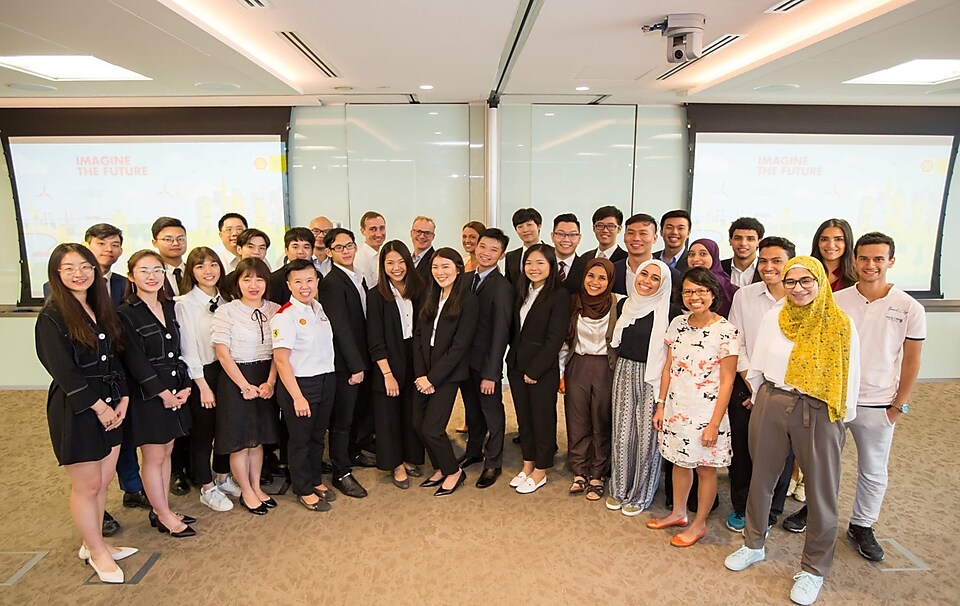
Imagine the Future Competition 2018/2019
Scenarios provide plausible alternative views of the future. Building and using scenarios can help us explore what the future might look like and the likely challenges of living in it.
This year, we welcome the national winners from China, Egypt, Singapore and Thailand to compete in the Regional Finals in Singapore on 2-4 July 2019. Learn about the teams and their scenarios.
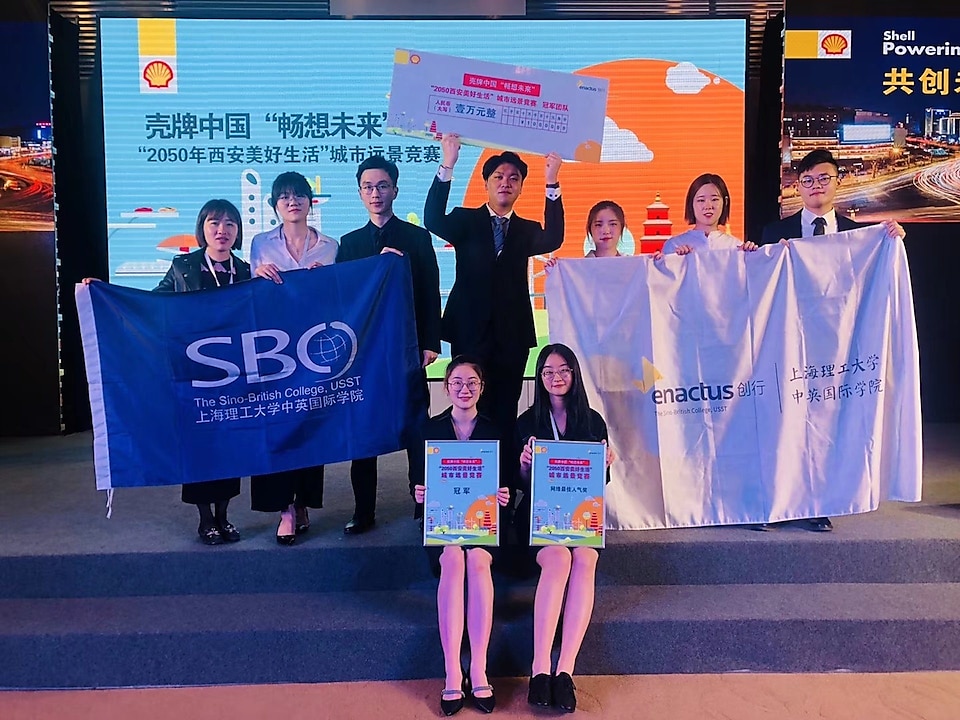
Xi An Vision Challenge in 2050 by The Sino-British College USST, China
In the next 30 years, the rapid development of technology could change dramatically the way we lead our lives in areas such as transportation, education, and energy generation.
For example, virtual simulation could diminish the need to step out of the house, a chip implanted in the brain can enable the direct download of information or the touch of a leaf with our fingertips can make one feel full. There will also be more diverse models for generating and storing electricity - even shoes could become new carriers of energy.
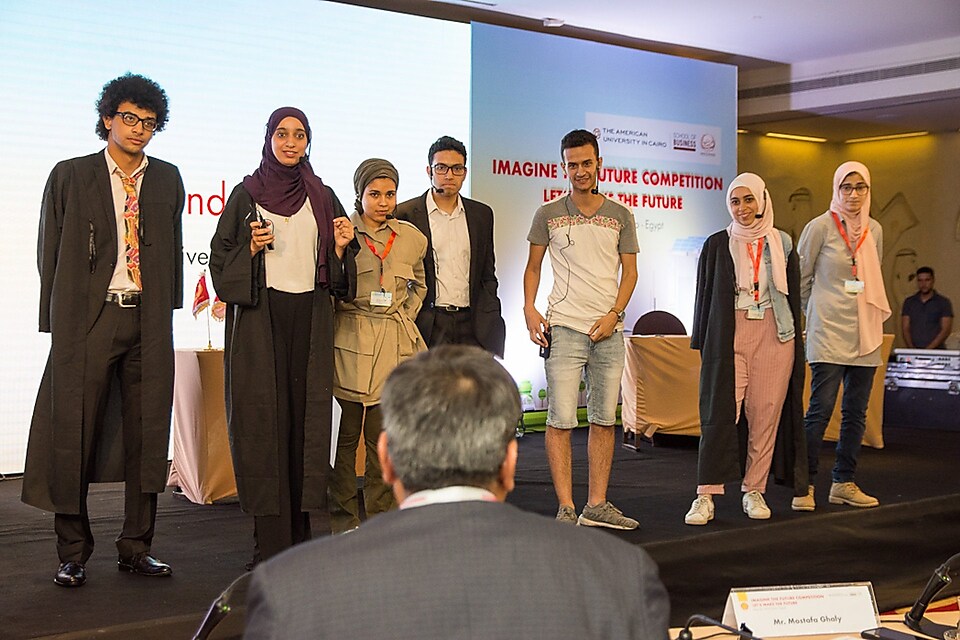
Orchestra VS Jazz, by the University of Science and Technology in Zewail City, Egypt
In 2050, two parallel universes will unfold. The first one is ‘Orchestra’, where nationalistic strategies and an extreme monopolisation of technology will lead to an orchestrated world where data and technology are controlled by the government and large corporates.
In the second scenario, ‘Jazz’, the world is more globalised, and technology and data are freely available, allowing small and medium enterprises to flourish. Egypt’s team explores these scenarios through Port Said, a city at the heart of the Suez Canal and an important hub for trade and commerce.
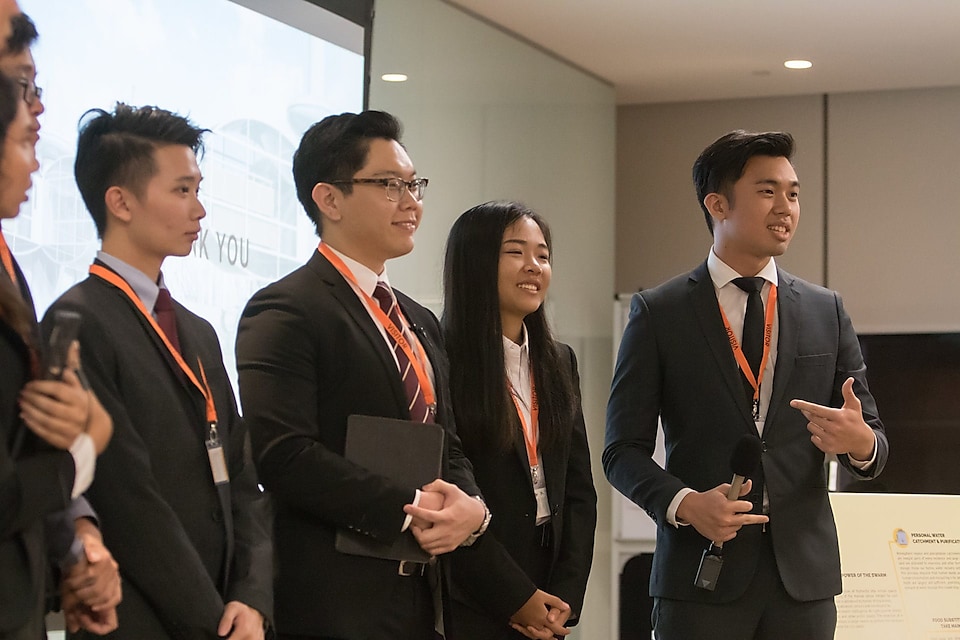
United We Stand vs Divide And Conquer by Nanyang Technological University, Singapore
In a future where climate change is inevitable, two unique scenarios could culminate when power is held in the hands of a few versus a distribution of power between community leaders and consumers. In the first scenario, Centralised World, the decision-making power is held by the government and large corporates who hold tremendous influence over people’s day-to-day lives, and individual privacy is largely eschewed in favour of collective security and expedited advancement. By banding together as one society, common goals and aligned efforts allow resources to be pooled together more efficiently, and large-scale infrastructure projects come together more rapidly. Artificial super-intelligences also allow for great leaps in urban planning, medical breakthroughs, security and safety.
In the second scenario, Decentralised World, cities fall prey to ecological disaster and social upheaval, and a new generation of climate migrants make their homes in previously uninhabited hinterlands. Self-determination takes precedence over government rule, which leads to a highly fragmented society where small communities are siloed and self-sufficient. In this world, localised problems demand highly specific solutions adapted to individual communities. However, the disjointed, laissez-faire nature of people hinders their ability to pool together enough resources to effect widespread change and formulate revolutionary innovations.
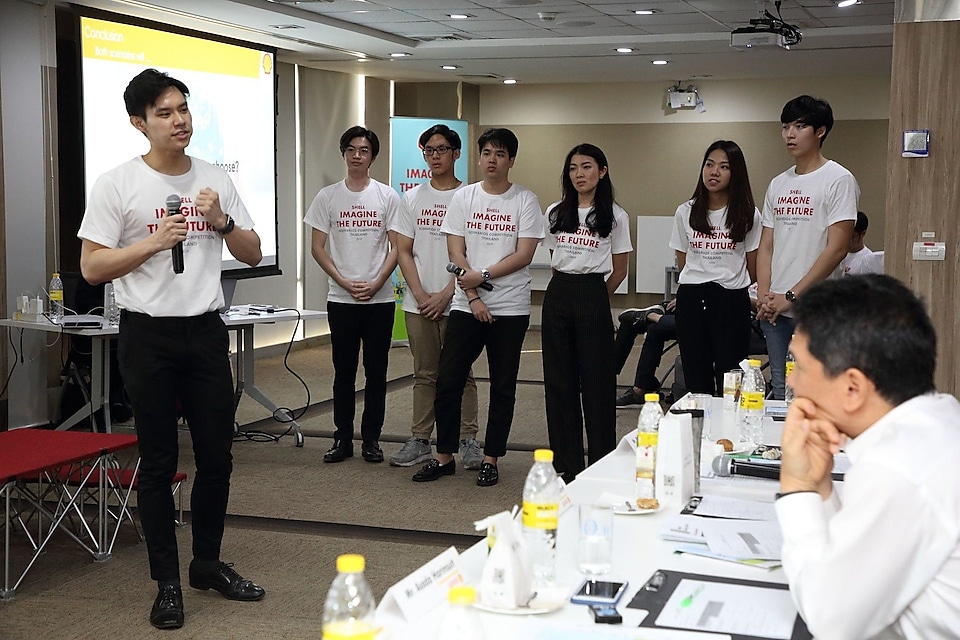
Homo Deus and Homo Sapiens: Decentralization of Knowledge and Degree of Economic Freedom by Chulalongkorn University, Thailand
The degree of decentralisation of knowledge and the degree of economic freedom are two critical trends that could affect the outcome of our future.
In ‘Homo Sapiens’, equal access, or the decentralisation, of knowledge, allows wealth and technology advancement to be more equally dispersed. Whereas in ‘Homo Deus’, limited access to knowledge to only those who can afford it means knowledge and wealth is concentrated within certain groups, further deepening the inequality gap in society.
Imagine the Future Scenarios Competition 2018/2019 Regional Finals | The Journey
Title: Imagine The Future 2018/2019 Journey
Duration: 1 minute 18 seconds
Description:
Montage video on the ITFC students, and their ideas on the energy saving possibilities available in 2050
[Video Footage]
A woman practicing her pitch.
[Dialogue: Male]
We have a long history of breathing scenarios.
[Video Footage]
A man practicing his pitch.
[Dialogue: Male]
We've indeed been very proud to be working with students coaching them in the arts of imagining the future.
[Video Footage]
A man presenting to a big group of students.
[Video Footage]
A student presenting on stage.
[Video Footage]
A student smiling.
[Video Footage]
Male presenter
[Video Footage]
Closer shot of the male presenter
[Text Display]
The Imagine the Future Journey
[Video Footage]
Instructor talking to the students.
[Dialogue: Male]
What we needed to do was to come up with two scenarios to illustrate how people live, work and play in 2050.
[Video Footage]
A group of students in discussion.
[Video Footage]
Students typing on their laptops.
[Video Footage]
Male Interview
[Dialogue: Male]
I believe that we will start to realise that we cannot keep on consuming Earth's resources and start to be more sustainable.
[Video Footage]
Instructor speaking.
[Video Footage]
Students and Instructor in a discussion.
[Video Footage]
Student presenting his idea.
[Video Footage]
Male Interview
[Dialogue: Female]
This is the year 2050.
[Video Footage]
Female presentation
[Video Footage]
Judge nods.
[Video Footage]
Student presenting.
[Dialogue: Male]
It's not just about the scenario but it's telling a very convincing story, painting a very cogent narrative.
[Video Footage]
Judge listens.
[Video Footage]
Male interview
[Video Footage]
Student presents on stage.
[Video Footage]
Students cheering towards the camera.
[Video Footage]
Judge claps
[Video Footage]
A woman creates a drawing based on the scenario
[Dialogue: Female]
2050 in this scenario is a stunning future that we have built on our individual genius.
[Video Footage]
Student presents.
[Video Footage]
Judge comments.
[Video Footage]
Female presentation.
[Dialogue: Male]
Human is the only kind of animal that is capable of affecting this planet in such a massive scale.
[Video Footage]
Male students looks ahead, listening intently.
[Video Footage]
Student comments among her group
[Video Footage]
Judges hold up signs of different scenarios
[Video Footage]
Male presentation.
[Video Footage]
Students of different countries interacting.
[Video Footage]
Students giving high fives during a discussion.
[Dialogue: Female]
My perspective changed a lot in this competition.
[Video Footage]
Female Interview
[Video Footage]
Students interacting with a VR headset
[Video Footage]
Students interacting with a flat screen.
[Dialogue: Female]
Different elements interacting with each other could lead to a different future.
[Video Footage]
Student presenting his ideas to others
[Dialogue: Male]
It's all about the mindset and knowledge.
[Video Footage]
Male Interview
[Dialogue: Male]
If it all comes to fruition, the world we live in in the future is really going to be an amazing one and there's something there for us to enjoy.
[Video Footage]
Students reading their notes
[Video Footage]
Advisor talking to the students
[Video Footage]
Student presenting on stage
[Video Footage]
Audience listening
[Video Footage]
Male interview
[Video Footage]
Winning team posing for a photo
[Video Footage]
Chairman congratulates the winning team.
[Dialogue: Male]
The future is in our hands. Let's decide on our actions for generations to come living the world that you think they deserve.
[Video Footage]
Egypt Ambassador shakes hands with the Egypt team.
[Video Footage]
Students watching a video.
[Video Footage]
Student presenting
[Video Footage]
Student presenting
[Video Footage]
Student Presentation
[Video Footage]
Student watching an exhibit.
[Text Display]
Imagine The Future
[Shell Hecten]
[Shell Jingle]
Imagine the Future Scenarios Competition 2018/2019 Singapore Finals | Catch the Highlights
Title: The Imagine The Future Singapore Finals
Duration: 1 minute 35 seconds
Description:
Montage video on the ITFC students, and their ideas on the energy saving possibilities available in 2050 for Asian Homes
[Video Footage]
Male student preparing for his presenation
[Dialogue: Male]
Let’s imagine that when you walk out of here right now, time would have fast forward 30 years.
[Video Footage]
Man presenting
[Video Footage]
Judge writing notes
[Dialogue: Male]
Today we are here to give you our vision on how we image the future would look like.
[Video Footage]
Man presenting
[Dialogue: Female]
This is the year 2050.
[Text Display]
Imagine The Future The Singapore Finals
[Video Footage]
Female pushing board
[Dialogue: Female]
It’s definitely important to imagine the kinds of futures we want to construct from the present day.
[Video Footage]
Female interview
[Video Footage]
Group of students preparing
[Dialogue: Female]
Exploring our imagination, thinking of the different possibilities.
[Video Footage]
Group of students chatting
[Video Footage]
Plastic model
[Dialogue: Male]
Are you satisfied with how you live in Singapore right now?
[Video Footage]
Female in black suit presenting
[Dialogue: Female]
In these days, innovation is everywhere.
[Video Footage]
Female presentation
[Video Footage]
Female in black dress presenting
[Dialogue: Male]
Technology is ever present in all day-to-day lives in the future. But it’s just how we use it, how we apply it to our different futures that really matters.
[Video Footage]
Judge listening
[Video Footage]
Male presentation
[Video Footage]
Female in black suit presenting
[Video Footage]
Judge explaining to the students while gesturing
[Dialogue: Female]
Scenarios shouldn’t be good or bad, they’re just our imagination.
[Video Footage]
Female presenation
[Video Footage]
Judge explaining
[Dialogue: Male]
It’s not just about the scenario but it’s telling a very convincing story, painting a very cogent narrative.
[Video Footage]
Judge explaining with gestures
[Video Footage]
Male student gestures at the board
[Video Footage]
Female student presenting
[Video Footage]
Judge applauses
[Dialogue: Male]
The future is very exciting. Give another 30 years, the world will definitely change.
[Video Footage]
Male interview
[Video Footage]
Student thinking while placing his phone on his chin
[Video Footage]
Female student listening to her groupmate present
[Dialogue: Male]
One very important thing that we all need to start thinking about is the impact on the environment. How we seek to reduce it over the next 30 years is going to be a very big change on how we live, work and play.
[Video Footage]
Male student listening to friends speaking
[Video Footage]
Male student talking to his friends
[Video Footage]
Male interview
[Video Footage]
Male student talking to his friends
[Video Footage]
Female student talking to her friends
[Video Footage]
Friends listening
[Dialogue: Male]
If it all comes to fruition, the world we live in in the future is really going to be an amazing one and there’s something there for everybody for us to enjoy.
[Video Footage]
Male interview
[Video Footage]
Male student in thought
[Video Footage]
Female student thinking
[Video Footage]
Male student presenting
[Video Footage]
Male student chatting
[Video Footage]
Female student presenting
[Video Footage]
Male student presenting
[Video Footage]
Female student presenting
[Video Footage]
Male student presenting
[Video Footage]
Male student presenting
[Video Footage]
Group of students laughing
[Video Footage]
Group of students laughing
[Video Footage]
Group of students posing for a photo
[Video Footage]
Male student smiling
[Dialogue: Male]
How do you imagine the future?
[Dialogue: Group]
How do you imagine the future?
[Dialogue: Group]
How do you imagine the future?
[Shell Hecten]
[Shell Jingle]
Imagine The Future Scenarios
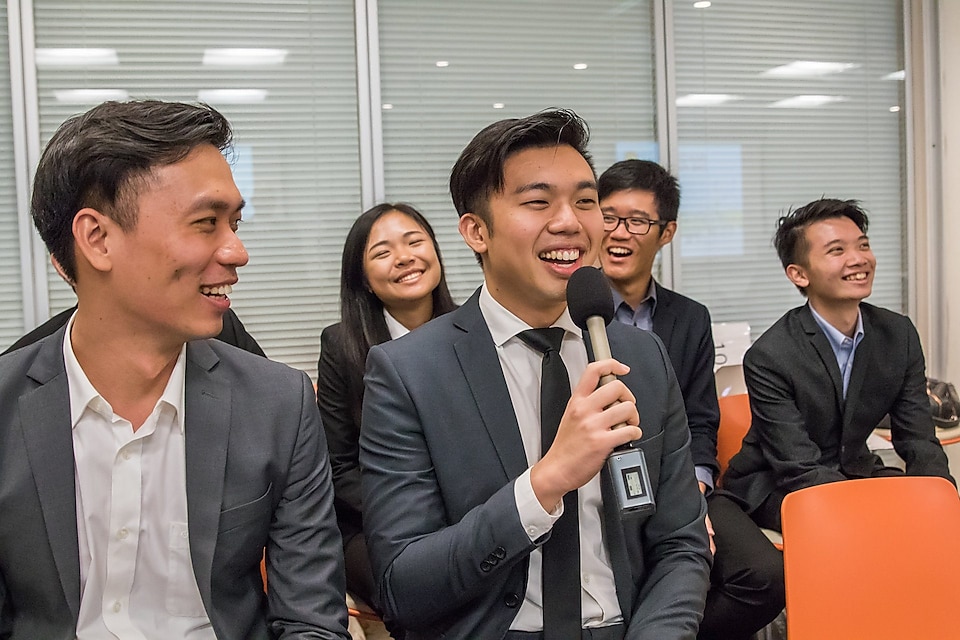
Imagine how we would live, work and play in 2050? How different would it be?
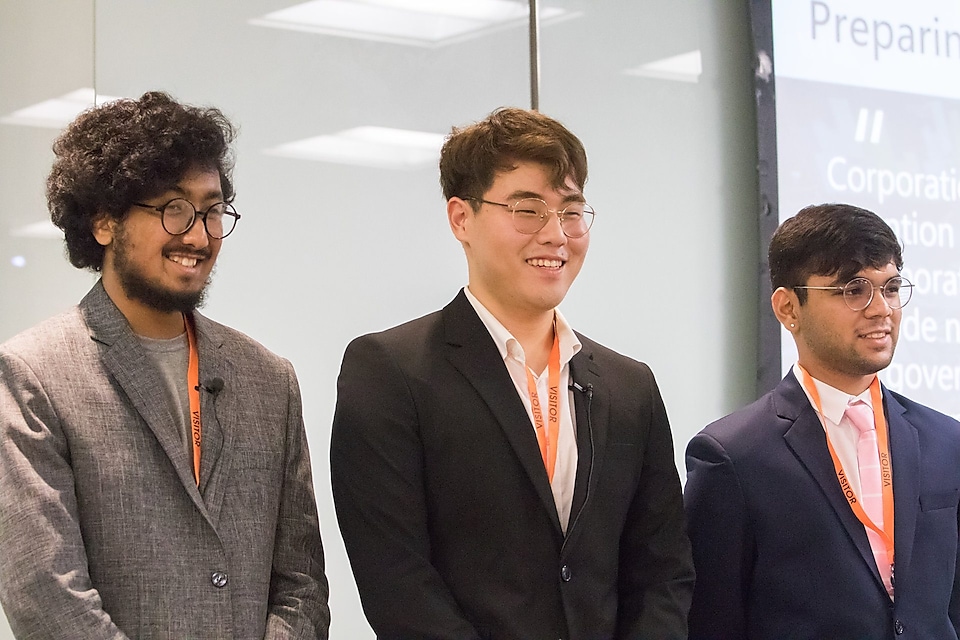
Discover what possibilities lie in the future of energy through the Imagine the Future Scenarios Competition.
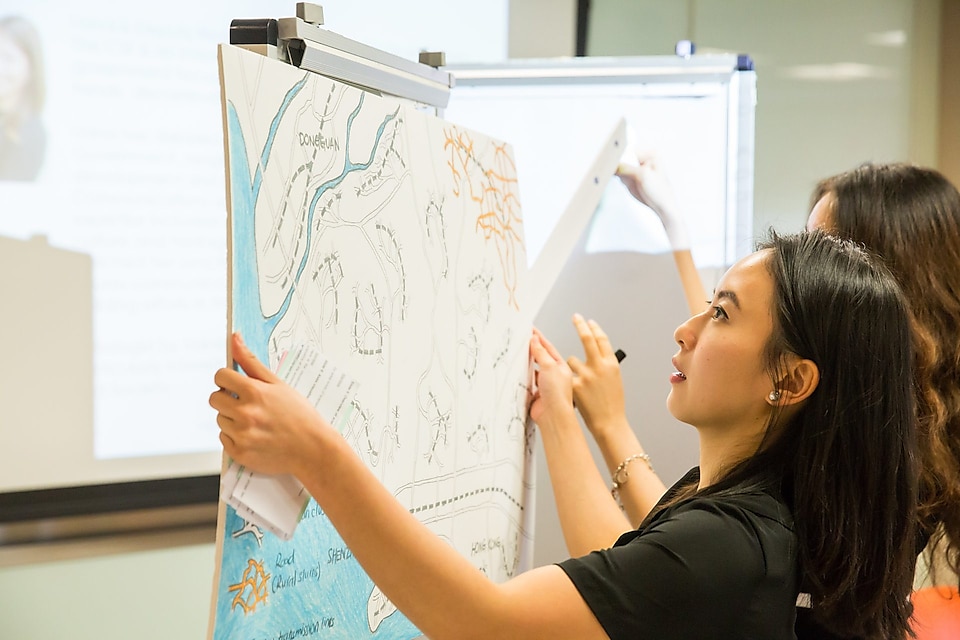
Imagine the Future Scenarios Competition allows us to think of a cleaner and more energy efficient future.
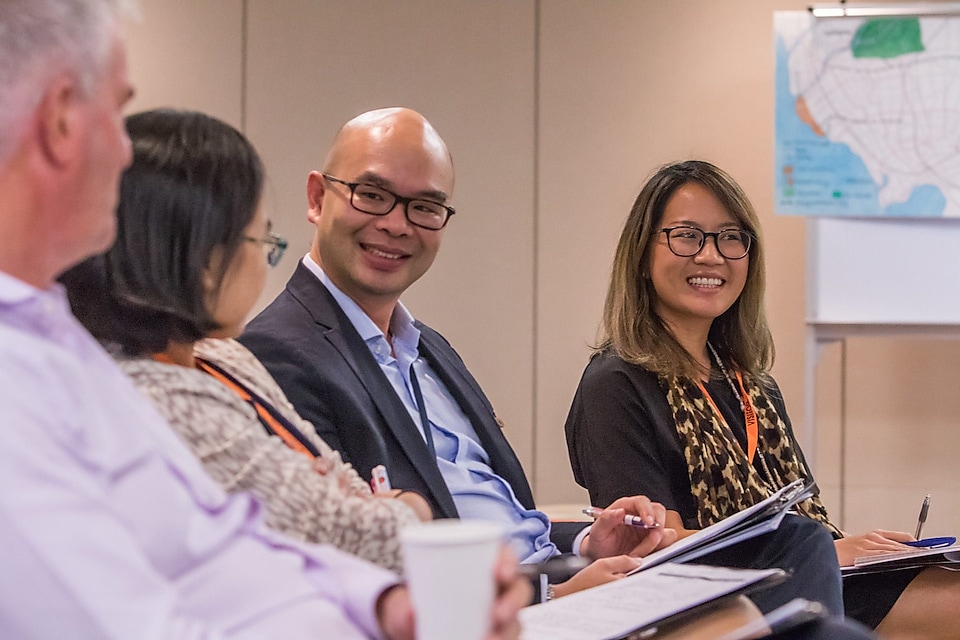
The panel of judges sharing a discussion during the Singapore National Finals.
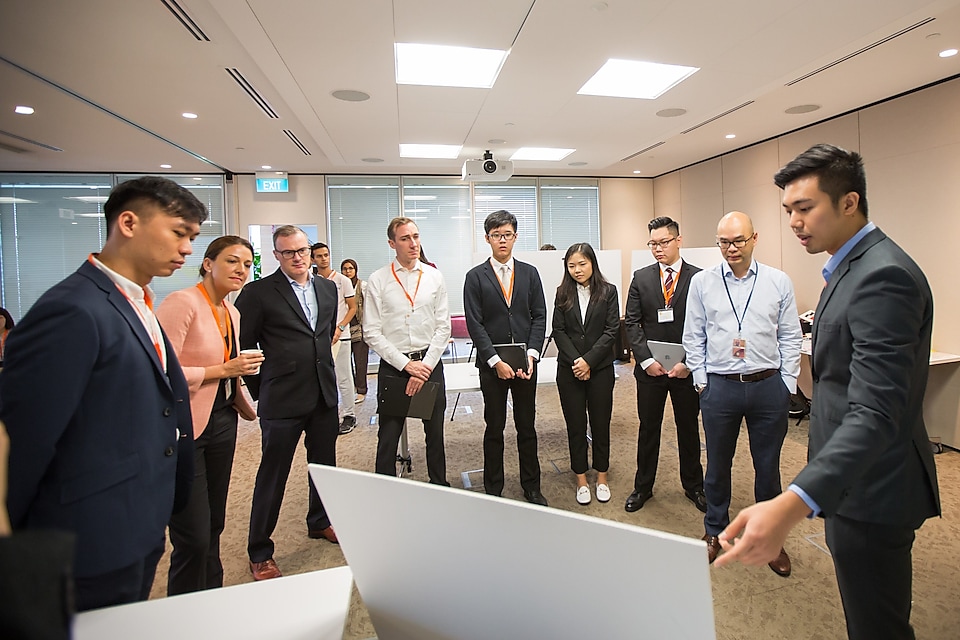
Team Singapore doing a show and tell of their physical exhibit.
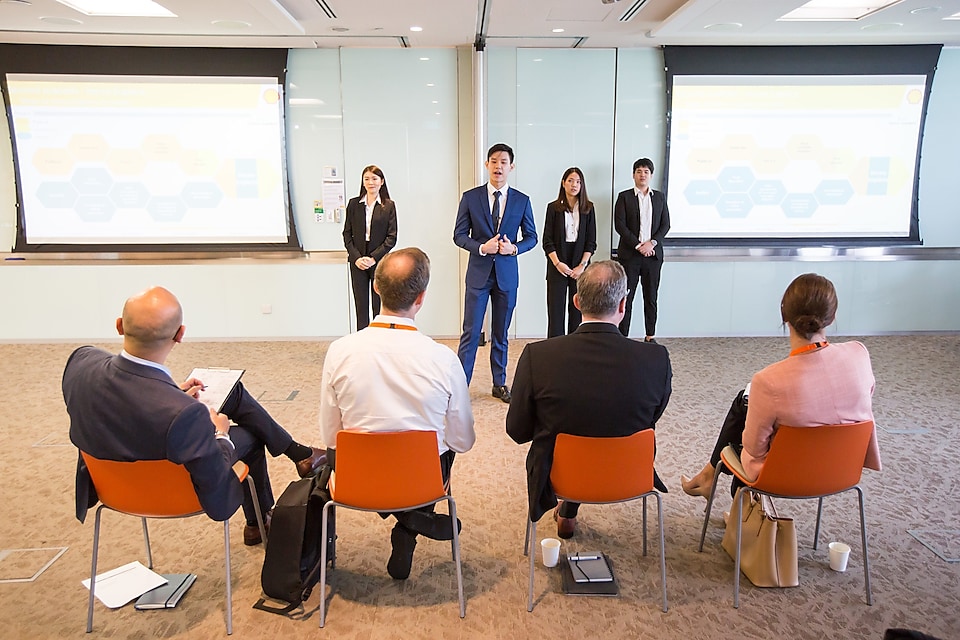
Team Thailand discussing the degree of decentralisation of knowledge and the degree of economic freedom.
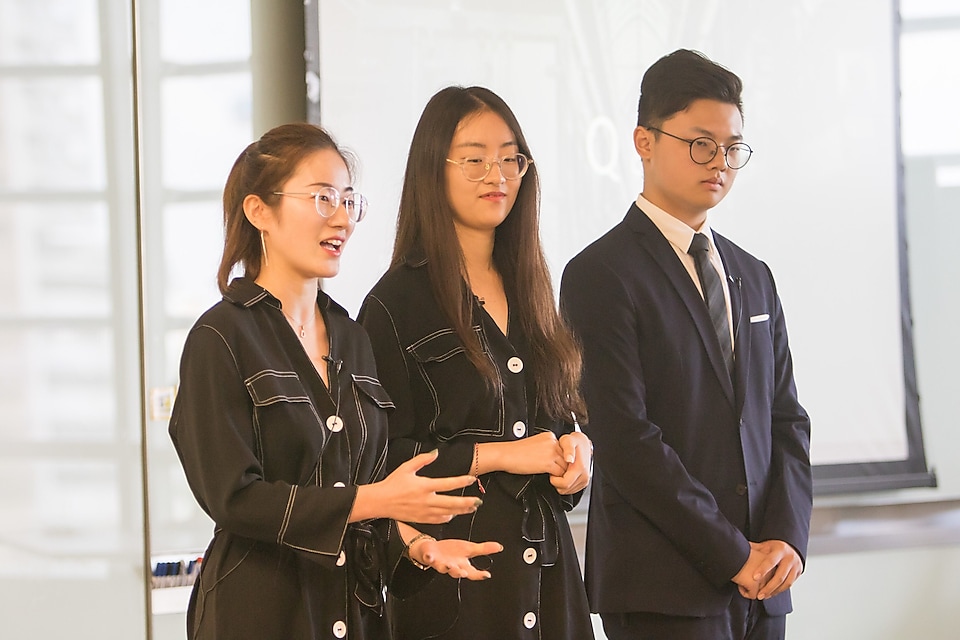
Team China explaining about their scenario – the Xi’an Vision Challenge in 2050.
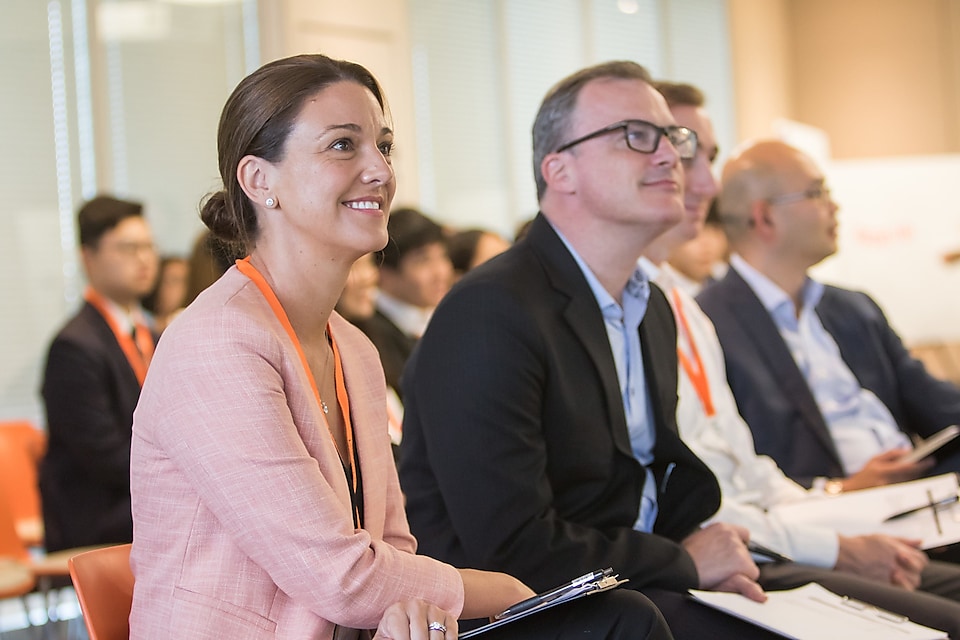
The panel of judges listening intently to the teams presenting.
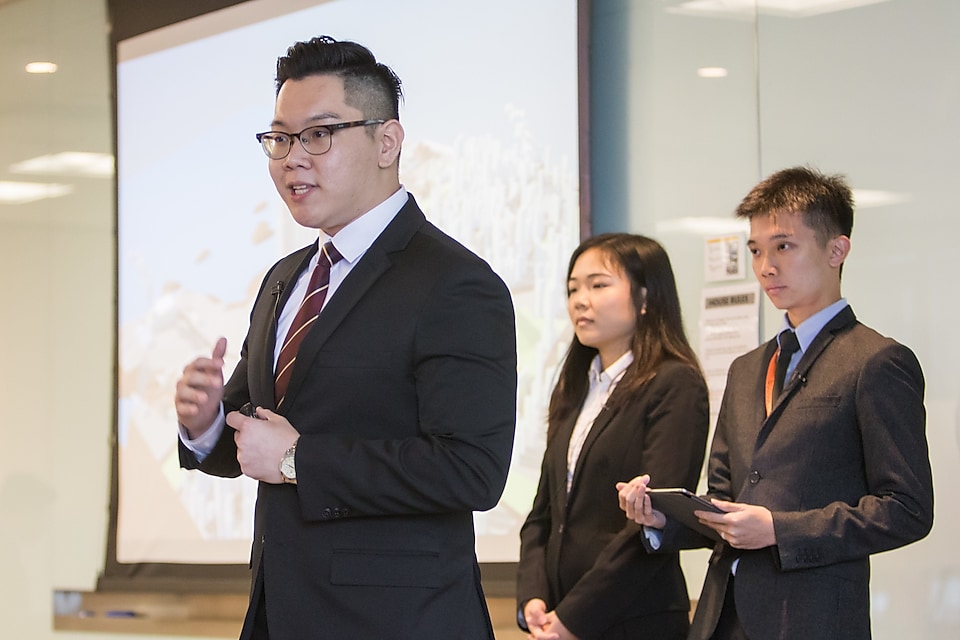
How would we live, work and play in 2050?
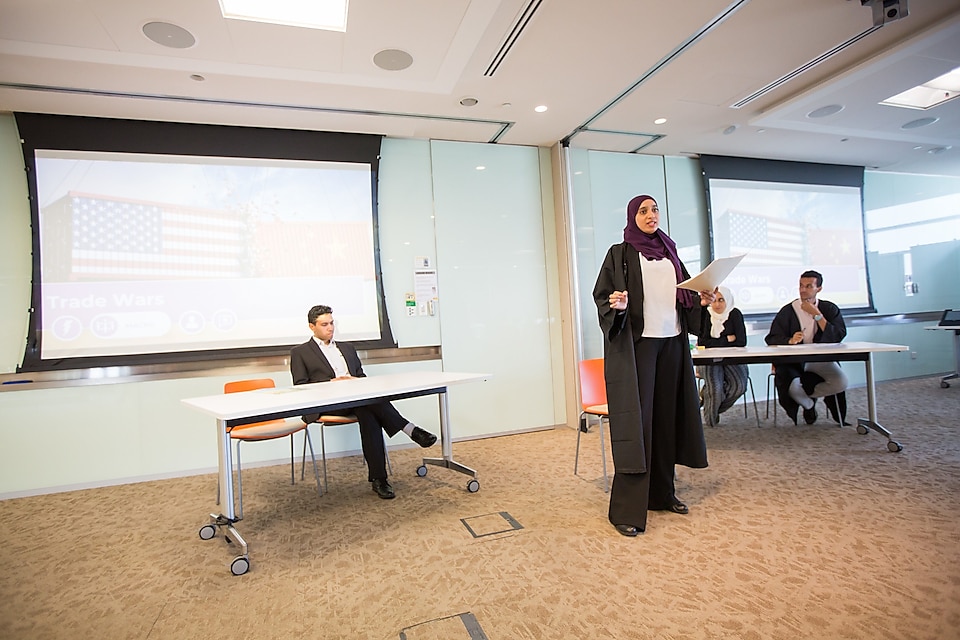
Team Egypt presenting their scenarios of two parallel universe in 2050 through a skit.
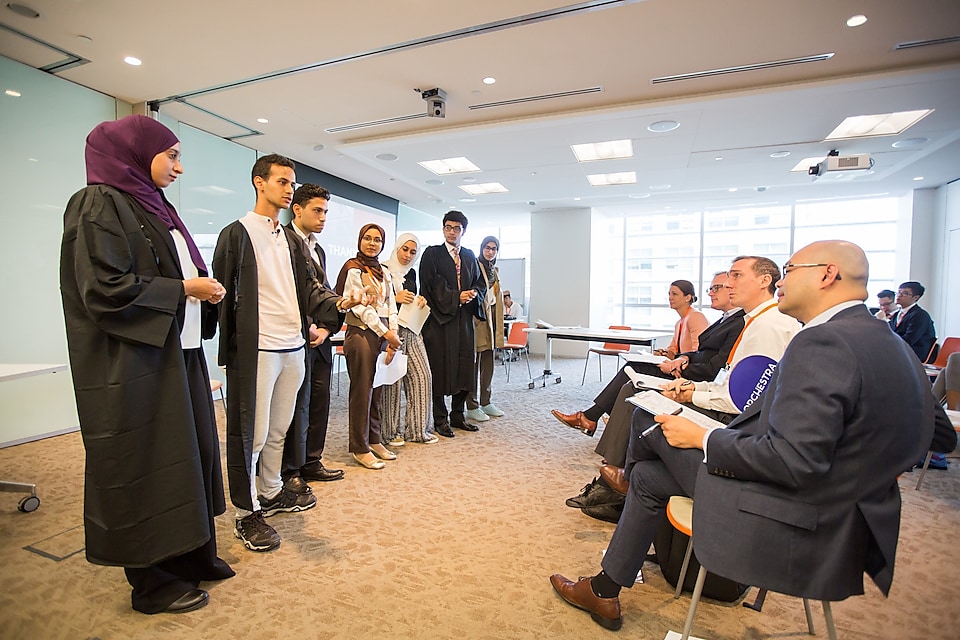
Building and using scenarios can help us explore what the future might look like and the likely challenges of living in it.
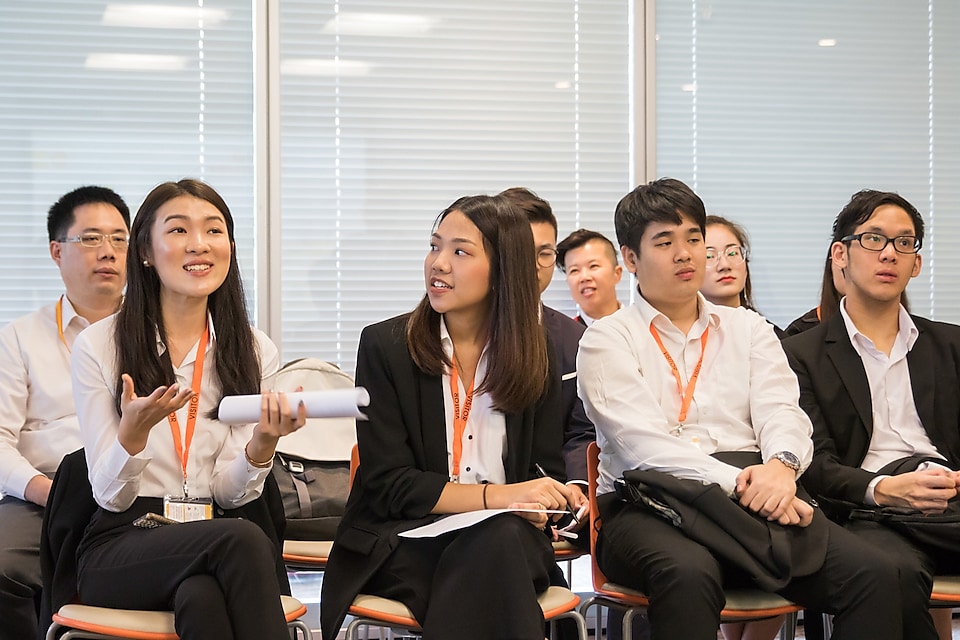
Together, we can Imagine the Future.
Previous editions
Imagine the Future Competition 2017/2018
Participants from the Imagine the Future Scenarios Competition 2017/2018 share their experiences.
Imagine the Future Competition 2019/2020
Participants from Imagine the Future Scenarios Competition 2019/2020 share their experiences.
